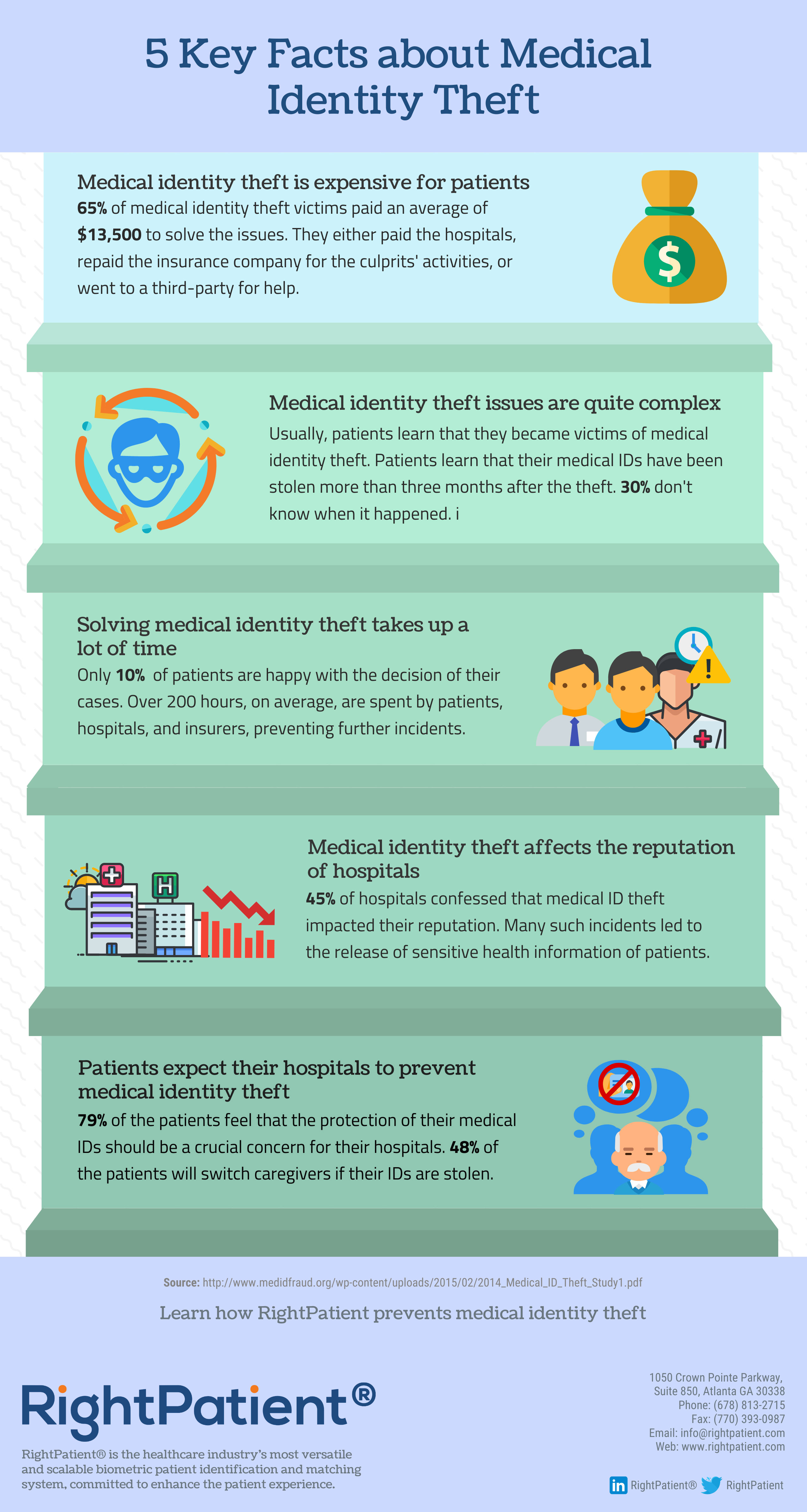Infographic: 5 Key Facts about Medical Identity Theft
Learn five key statistics about medical identity theft to see how badly it affects patients, insurers, and healthcare providers.
Learn five key statistics about medical identity theft to see how badly it affects patients, insurers, and healthcare providers.
Medical identity theft is something that needs no introduction, especially for patients as well as healthcare systems. For others, they have a vague idea about it. Medical identity theft occurs when an unauthorized person uses a patient’s health data to avail benefits such as healthcare services, equipment, medicine, and so on. However, there are other problems as well- the culprit’s data may get mixed with the victim’s one, and the latter may get services based on the preferences of the former, which can be quite dangerous.
However, some key facts should be known regarding medical identity theft. The following infographic sheds light on five such points that provide a thorough idea as to how complex and problematic medical identity theft is.
The infographic is based on a study done by Ponemon Institute, a renowned name in finding out the problems caused by a lack of accurate patient identification. The infographic focuses on the main highlights which the study has provided.
Firstly, medical identity theft is quite expensive for patients. This comes as no surprise since 65% of medical identity theft victims paid an average of $13,500 to solve the issues. They either paid the hospitals, repaid the insurance company for the culprits’ activities, or went to a third-party for help.
Secondly, medical identity theft issues are quite complex. Usually, patients learn that they became victims of medical identity theft. Patients learn that their medical IDs have been stolen more than three months after the theft. 30% don’t know when it happened.
Solving medical identity theft takes up a significant amount of time. Only 10% of patients are happy with the decision of their cases. Over 200 hours, on average, are spent by patients, hospitals, and insurers, preventing further incidents.
Medical identity theft affects the reputation of hospitals. 45% of hospitals confessed that medical ID theft impacted their reputation. Many such incidents led to the release of sensitive health information of patients.
The infographic ends with saying that patients expect their hospitals to prevent medical identity theft. 79% of the patients feel that the protection of their medical IDs should be a crucial concern for their hospitals. 48% of the patients will switch caregivers if their IDs are stolen.
